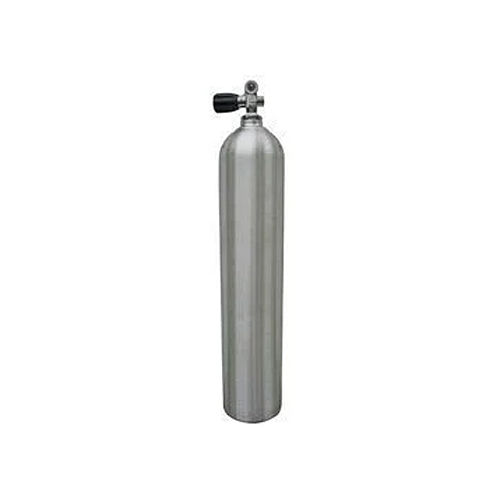Industrial Specialty Gas
Product Details:
- Purity High
- Industries Oil And Gas
- Air Gases Nitrogen
- Application Commercial
- Click to View more
Industrial Specialty Gas Price And Quantity
- 200 INR/Kilograms
- 20 Kilograms
Industrial Specialty Gas Product Specifications
- Nitrogen
- High
- Commercial
- Oil And Gas
Industrial Specialty Gas Trade Information
- Cash Advance (CA)
- 1000 Kilograms Per Month
- 10 Days
- All India
Product Description
Industrial speciality gases are gases that are utilised in a variety of industrial applications and have unusual compositions or qualities to suit particular specifications. For industrial processes that require exact and specialised gas qualities, these gases are frequently manufactured, stored, and delivered by gas producers.
Following are some instances of industrial speciality gases and their uses:
1. Gases for Calibration: Gases for Calibration are used to calibrate and confirm the precision of devices for gas analysis and detection. Typically, they are specially formulated gas mixes with predetermined levels of gases including methane, carbon monoxide, oxygen, hydrogen sulphide, nitrogen dioxide, sulphur dioxide, and others. For the accuracy of gas sensors and analyzers used in environmental monitoring, industrial safety, and laboratory analysis, calibration gases are essential.
2. Welding gases are used in a variety of welding procedures to control heat transmission, generate an inert atmosphere, shield the weld pool, and improve the weld quality. Examples of welding gases include argon, helium, carbon dioxide, and oxygen. Every gas has unique qualities, and the one used depends on the particular welding application and material being welded.
3. Medical gases are used in hospitals for a variety of tasks, such as patient care, anaesthesia, respiratory support, and diagnostic investigations. Oxygen, nitrous oxide, carbon dioxide, helium, and other combinations are common medical gases used in medicinal procedures, surgery, and imaging.
4. Specialty gases are necessary for the semiconductor industry's production of electronic devices and components. In semiconductor fabrication facilities (fabs), gases like nitrogen, oxygen, argon, hydrogen, and specific gas mixes are utilised for purging, etching, deposition, and cleaning procedures.
5. Analytical Gases: For the purposes of scientific research, quality control, and testing, analytical gases are employed in analytical laboratories and apparatus. These gases are used in gas chromatography, mass spectrometry, spectroscopy, and other analytical procedures. Examples include high-purity helium, hydrogen, nitrogen, and different gas combinations.
6. Hydrofluorocarbons (HFCs) and hydrochlorofluorocarbons (HCFCs) are two refrigerant gases that are utilised in cooling and refrigeration systems for commercial and industrial purposes. They deliver the cooling effect required for industrial cooling, refrigeration, and air conditioning systems.
These are only a few types of industrial speciality gases; there are many more. There are various additional speciality gases available, depending on the particular industry and application, including rare gases (neon, krypton, xenon), high-purity gases, process gases, laser gases, and more.
Industrial specialty gas producers and suppliers often specialise in the creation, filtration, and distribution of these gases. Through stringent production and quality control procedures, these firms guarantee the gas' quality, purity, and safety.
To protect workers' safety and the integrity of industrial processes when using industrial speciality gases, it's important to adhere to safety precautions, handle the gases properly, and follow legal requirements.
FAQ
1. What is industrial speciality gas?
Ans - A type of gas utilised in industrial applications, industrial speciality gas often has a greater purity level than most other gases.
2. What are some typical industrial specialised gas applications?
Ans - Several sectors and uses, including welding, metalworking, semiconductor manufacturing, research and development, aerospace, and automotive, employ industrial speciality gas.
3. Which benefits come with using industrial speciality gas?
Ans - Industrial speciality gas offers unrefined natural gases a safer and more affordable substitute. Additionally, compared to other forms of gases, it is less prone to contaminate things and frequently has a longer shelf life.
4. What safety measures need to be implemented before using industrial speciality gas?
Ans - When handling industrial speciality gas, it's crucial to wear the appropriate safety gear, including gloves, clothes, and eyewear. All petrol tanks must also be correctly labelled, kept cool, dry and well-ventilated, and combustible gases must never come into contact with open flames.
5. Where can I buy petrol for industrial use?
Ans - Businesses that focus on industrial gases sell specialised gases for industry. It is advised to buy the petrol from a seasoned and recognised source for the best outcomes.
 |
THIRUMALAI ATMOSPHERIC PRODUCTS
All Rights Reserved.(Terms of Use) Developed and Managed by Infocom Network Private Limited. |
 Send SMS
Send SMS